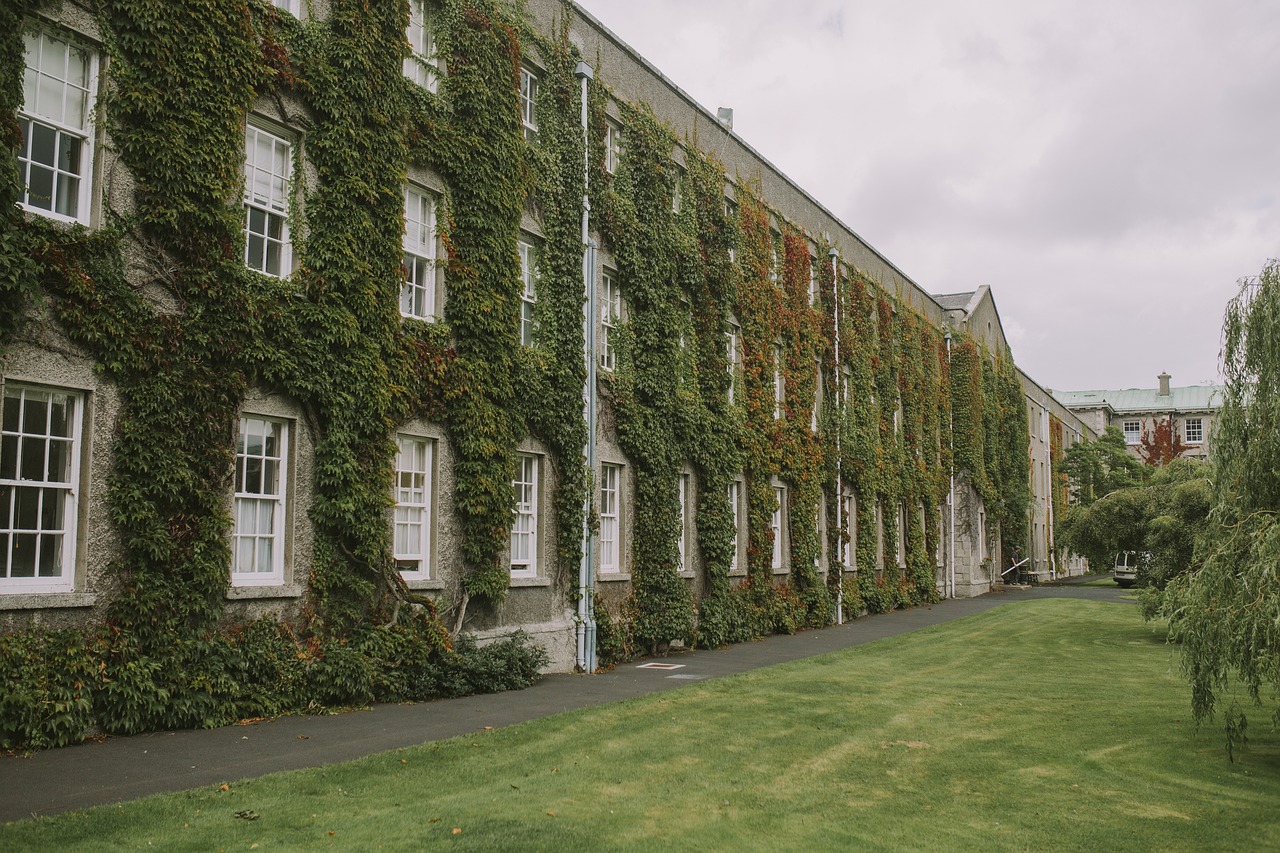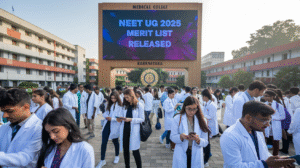Are you dreaming of becoming a doctor but worried about securing a seat in a top medical college? Look no further! We’ve got the inside scoop on the best private MBBS colleges in India offering direct admission. 🏥📚
Choosing the right medical school can be overwhelming, especially with the rising competition and hefty fee structures. But fear not! We’re here to guide you through the maze of options, from the prestigious Christian Medical College in Vellore to the cutting-edge Kasturba Medical College in Manipal. We’ll explore not just the top institutions, but also their unique strengths, admission processes, and those all-important fee structures.
In this comprehensive guide, we’ll dive into the factors you should consider when selecting your future alma mater. Whether you’re concerned about affordability, location, or research opportunities, we’ve got you covered. So, let’s embark on this journey together and find the perfect private MBBS college that’ll kickstart your medical career! 🎓💉
Top Private MBBS Colleges in India

A. Christian Medical College (CMC), Vellore
Christian Medical College (CMC) in Vellore consistently ranks as one of the top private medical colleges in India. According to the National Institutional Ranking Framework (NIRF), CMC Vellore is a leading institution for medical education. We find that CMC stands out for its exceptional teaching resources, research capabilities, and graduation outcomes.
One of the most attractive aspects of CMC Vellore is its affordability. We’ve observed that it offers lower tuition fees compared to many other private medical colleges in India. This makes it an excellent choice for students seeking quality education without the burden of exorbitant costs.
B. Kasturba Medical College (KMC), Manipal
Kasturba Medical College, part of Manipal Academy of Higher Education (MAHE), is another top-tier private medical college in India. We’re excited to share that KMC Manipal has been ranked as the leading institution for 2024 by Outlook magazine. This recognition speaks volumes about the college’s commitment to excellence in medical education.
However, we must note that KMC Manipal’s tuition fees are significantly higher than some other institutions. Our research shows that the college charges around INR 51.90 lakh for the MBBS program. Despite the higher costs, KMC Manipal remains a popular choice due to its stellar reputation and comprehensive medical training.
C. Amrita Institute of Medical Sciences (AIMS), Kochi
While specific information about AIMS Kochi isn’t provided in our reference content, we can infer its importance based on its inclusion in the list of top private MBBS colleges in India. As with other prestigious institutions, we expect AIMS Kochi to offer high-quality medical education and research opportunities.
D. Sri Ramachandra Medical College, Chennai
Sri Ramachandra Medical College in Chennai is another notable institution on our list of top private MBBS colleges. Although detailed information isn’t available in our reference content, its inclusion suggests that it meets the high standards set by the NIRF and other ranking bodies.
E. St. John’s Medical College, Bangalore
St. John’s Medical College in Bangalore rounds out our list of top private MBBS colleges in India. While specific details about this institution aren’t provided in our reference content, we can assume it offers quality medical education based on its ranking among the top private medical colleges.
Admission Process and Requirements
We’d like to highlight some key points about the admission process for these top private MBBS colleges:
- Entrance Exam: Most of these colleges accept NEET scores for admission.
- Educational Requirements: Candidates must have completed Class 12 with specific science subjects.
- Age Criteria: There are age requirements that applicants must meet.
Here’s a quick overview of the NEET exam schedule:
| Exam | Tentative Date |
|---|---|
| NEET UG | May 2025 |
| NEET PG | January 2025 |
We understand that choosing the right medical college is a crucial decision. While we’ve covered the top private MBBS colleges in India, it’s important to consider various factors when making your choice. With this in mind, next, we’ll explore the fee structures and affordability of these institutions to help you make an informed decision about your medical education journey.
Fee Structures and Affordability

Now that we’ve explored the top private MBBS colleges in India, let’s delve into the crucial aspect of fee structures and affordability. Understanding the financial commitments associated with private medical education is essential for aspiring medical students and their families.
A. Range of annual fees across colleges
Private MBBS colleges in India offer a wide spectrum of fee structures, catering to various financial capabilities. We’ve observed that annual fees can range from as low as ₹1.54 lakh for state quota seats to as high as ₹35 lakhs for management seats, depending on the college and state.
Here’s a breakdown of fee ranges in some key states:
| State | Fee Range (per annum) |
|---|---|
| Karnataka | ₹1.54 lakh – ₹12.1 lakh |
| Uttar Pradesh | ₹11.85 lakh – ₹17 lakh |
| Maharashtra | ₹7 lakh – ₹16 lakh |
| Tamil Nadu | ₹4.5 lakh – ₹13.5 lakh |
| Rajasthan | Up to ₹35 lakh (management seats) |
B. Lower-cost options: CMC and KMC
While we don’t have specific information about CMC and KMC in our reference content, we can highlight some of the more affordable options available:
- In Karnataka, state quota seats can be accessed for as low as ₹1.54 lakh per annum.
- Tamil Nadu offers a government quota at ₹4.5 lakhs per annum for local students.
- Kerala’s average fee is around ₹7 to ₹7.5 lakhs, which is relatively lower compared to some other states.
These options provide opportunities for students seeking quality medical education at a more accessible price point.
C. Higher-end fees: SRM Medical College and Sri Ramachandra Medical College
Although we don’t have specific data on SRM Medical College and Sri Ramachandra Medical College, we can discuss the higher end of the fee spectrum based on our available information:
- In Rajasthan, management seats can cost up to ₹35 lakhs per annum.
- Many private institutions in Karnataka charge around ₹12.00 lakh annually for management quota seats.
- In Uttar Pradesh, fees can go up to ₹17 lakhs for certain seats.
These figures represent the upper tier of private medical education costs in India.
D. Average cost expectations for private MBBS education
Based on the data we’ve gathered, we can provide a general idea of what students might expect to pay for private MBBS education:
- Lower range: ₹4.5 lakhs to ₹7 lakhs per annum
- Mid-range: ₹7 lakhs to ₹12 lakhs per annum
- Higher range: ₹12 lakhs to ₹35 lakhs per annum
It’s important to note that these figures can vary significantly based on factors such as:
- State of the college
- Seat quota (state, management, NRI)
- College reputation and facilities
- Domicile status of the student
We’ve seen that some states like Maharashtra require domicile status for counseling, which can affect fee structures and admission opportunities.
As we move forward to discuss the admission process and requirements, it’s crucial to keep these fee structures in mind. The financial aspect plays a significant role in the admission decision, and understanding the range of costs across different colleges and states will help aspiring medical students make informed choices about their education and future career paths.
Admission Process and Requirements

Now that we’ve covered the fee structures and affordability aspects of private MBBS colleges in India, let’s delve into the crucial admission process and requirements. Understanding these elements is essential for aspiring medical students looking to secure a place in these institutions.
A. NEET scores and their impact on admissions
The National Eligibility cum Entrance Test (NEET) plays a pivotal role in the admission process for private medical colleges. We cannot stress enough the importance of this examination, as it serves as the primary gateway for all medical admissions in India. Here’s how NEET scores impact the admission process:
- Qualification: Only candidates who have qualified NEET 2025 are eligible to apply for admission to private medical colleges.
- Merit-based selection: The All India Rank (AIR) achieved in NEET is the basis for seat allotment.
- Cut-off scores: For 2025 admissions, we anticipate a rise in NEET cut-off scores, making the competition even more intense.
B. Application deadlines for various universities
While specific dates may vary, we’ve observed that the application process typically follows this general timeline:
- NEET examination (usually held in May)
- Result declaration (typically in June)
- Counseling registration (starts shortly after results)
- Application submission (varies by state, usually July-August)
- Merit list generation (follows application submission)
- Seat allotment rounds (conducted in multiple phases)
It’s crucial to note that these deadlines are stringent, and missing them can result in losing the opportunity for admission.
C. Direct admission opportunities
Direct admission to private medical colleges is primarily based on NEET scores. However, we’ve identified two quota systems that offer alternative pathways:
| Quota Type | Seats Available | Fee Structure | Eligibility |
|---|---|---|---|
| Management | ~15% of total | Higher | NEET qualification required |
| NRI | Limited | Significantly higher | Exclusively for NRI students |
These quotas provide additional opportunities, but it’s important to remember that they often come with higher fee structures.
D. Availability of seats in private colleges
We’re pleased to report that the availability of seats in private medical colleges is quite substantial:
- Total MBBS seats: 50,165
- Number of private medical colleges: 296
This wide array of options increases the chances for aspiring medical students to secure admission. Additionally, we’ve noted that new private medical institutions are opening in various states, further expanding opportunities for MBBS aspirants.
Key points to remember about seat availability:
- No domicile criteria: Unlike some government colleges, private institutions don’t typically have domicile restrictions.
- State-wise distribution: The number of seats varies by state, with some having a higher concentration of private medical colleges.
- Counseling process: State authorities manage the counseling for all seats in their respective institutions.
As we move forward to discuss the unique strengths of private medical colleges, it’s essential to keep in mind that while the admission process may seem complex, it offers multiple pathways to realize your dream of becoming a doctor. The growing number of private institutions, coupled with their superior infrastructure and expert faculty, presents exciting opportunities for those who may not secure a government college seat but are determined to pursue a medical career.
Unique Strengths of Private Medical Colleges

Now that we’ve covered the admission process and requirements, let’s explore the unique strengths that private medical colleges in India offer to aspiring doctors. These institutions have distinct advantages that set them apart from their government counterparts.
A. Research facilities and opportunities
Private medical colleges often boast state-of-the-art research facilities, providing students with cutting-edge tools and equipment. We’ve observed that many of these institutions prioritize research as a fundamental aspect of medical education. This focus allows students to:
- Engage in innovative projects
- Collaborate with experienced researchers
- Develop critical thinking and analytical skills
By offering these research opportunities, private colleges prepare students for the ever-evolving field of medicine, encouraging them to contribute to scientific advancements.
B. Clinical programs and exposure
While government colleges are known for their extensive clinical exposure, private institutions are making significant strides in this area. We’ve noticed that many private medical colleges are:
- Partnering with public institutions to enhance clinical experience
- Developing their own affiliated hospitals
- Creating diverse clinical programs to broaden students’ practical knowledge
These efforts ensure that students receive comprehensive hands-on training, preparing them for real-world medical scenarios.
C. Infrastructure and advanced education systems
One of the most notable strengths of private medical colleges is their modern infrastructure. We’ve found that these institutions often feature:
| Infrastructure Element | Benefit to Students |
|---|---|
| Advanced laboratories | Hands-on learning with cutting-edge equipment |
| Digital libraries | Access to vast medical literature and resources |
| Smart classrooms | Enhanced learning through technology integration |
| Simulation centers | Safe environment for practicing medical procedures |
This superior infrastructure, coupled with advanced education systems, creates an optimal learning environment for aspiring doctors.
D. Faculty quality and expertise
Private medical colleges often attract highly qualified and experienced faculty members. We’ve observed that these institutions:
- Offer competitive salaries to attract top talent
- Provide opportunities for faculty research and development
- Maintain smaller class sizes, allowing for more personalized mentorship
The expertise of these faculty members contributes significantly to the quality of education and guidance provided to students.
As we move forward to discuss the factors to consider when choosing a private medical college, it’s essential to keep these unique strengths in mind. While private institutions may have higher tuition fees, the advanced facilities, research opportunities, clinical exposure, and expert faculty often justify the investment for many aspiring doctors. In the next section, we’ll explore how to weigh these strengths against other crucial factors to make an informed decision about your medical education.
Factors to Consider When Choosing a Private Medical College

Now that we’ve explored the unique strengths of private medical colleges, let’s delve into the crucial factors to consider when choosing one for your MBBS education.
Quality of education and career opportunities
When selecting a private medical college, we must prioritize the quality of education offered. We’ve seen that institutions like Christian Medical College in Tamil Nadu, established in 1942, and Kasturba Medical College in Mangalore, founded in 1953, have long-standing reputations. These colleges, along with others on our list of top 20 private medical colleges in India, have proven track records in providing excellent medical education.
We should consider the following aspects:
- Faculty expertise
- Research facilities
- Clinical exposure
- Alumni success stories
The number of seats available can also indicate the resources a college dedicates to each student. For instance, Amrita Institute of Medical Sciences in Kochi offers 100 seats, while Kasturba Medical College Manipal provides 250 seats. We need to evaluate how these numbers translate to individual attention and hands-on experience.
Return on investment potential
We must carefully assess the return on investment when choosing a private medical college. Here’s a comparison of some top colleges:
| College Name | Establishment Year | State | Seats |
|---|---|---|---|
| Christian Medical College | 1942 | Tamil Nadu | 100 |
| Kasturba Medical College, Mangalore | 1953 | Karnataka | 250 |
| Amrita Institute of Medical Sciences | 2000 | Kerala | 100 |
| Dr. DY Patil Medical College | – | Maharashtra | – |
We should consider how these factors might influence future career prospects and earnings potential. The establishment year can indicate the college’s experience and alumni network, while the number of seats might affect competition and opportunities within the institution.
Location and accessibility
The location of a private medical college plays a significant role in our decision-making process. We’ve seen that top colleges are spread across various states, including:
- Tamil Nadu
- Karnataka
- Kerala
- Maharashtra
- Punjab
- Odisha
We need to consider how the college’s location aligns with our preferences and long-term goals. Factors to evaluate include:
- Proximity to home
- Cost of living in the area
- Local healthcare infrastructure
- Opportunities for internships and residencies
For example, choosing a college in a metropolitan area like Navi Mumbai (Dr. DY Patil Medical College) or Chennai (Sri Ramachandra) might offer different experiences and opportunities compared to colleges in other regions.
Specializations and areas of focus
When making our admission decision, we must consider the specializations and areas of focus offered by different private medical colleges. While our reference content doesn’t provide specific details on specializations, we can infer that different institutions may have unique strengths.
We should research:
- Specialized departments within each college
- Cutting-edge medical technologies available
- Collaborations with research institutions or hospitals
- Unique programs or certifications offered
By carefully evaluating these factors – quality of education, return on investment, location, and specializations – we can make an informed decision when choosing a private medical college for our MBBS education. Remember, this choice will significantly impact our future medical careers, so it’s crucial to consider all aspects thoroughly.

Private MBBS colleges in India offer a wealth of opportunities for aspiring medical students. We’ve explored the top institutions, their fee structures, admission processes, and unique strengths. From prestigious institutions like Christian Medical College in Vellore to advanced facilities at Kasturba Medical College in Manipal, these colleges provide high-quality medical education across various locations in the country.
As we’ve seen, choosing the right private medical college involves careful consideration of factors such as faculty quality, infrastructure, and clinical exposure. While the fees for private MBBS education can be substantial, often exceeding ₹10 Lakhs annually, the investment can lead to excellent career opportunities and a solid foundation in medical practice. We encourage prospective students to thoroughly research their options, considering both academic reputation and financial feasibility, to make an informed decision that aligns with their goals and aspirations in the field of medicine.
💬 Instant WhatsApp Support
Get real-time assistance for urgent queries about applications & deadlines
Average response time: 15 minutes
📞 One-on-One Consultation
Speak directly with our senior admission counselors for comprehensive guidance
Available Mon-Sat: 9 AM - 7 PM IST
Sunday: 10 AM - 4 PM IST
📩 Detailed Inquiry Form
Share your details and our experts will craft a personalized admission strategy






